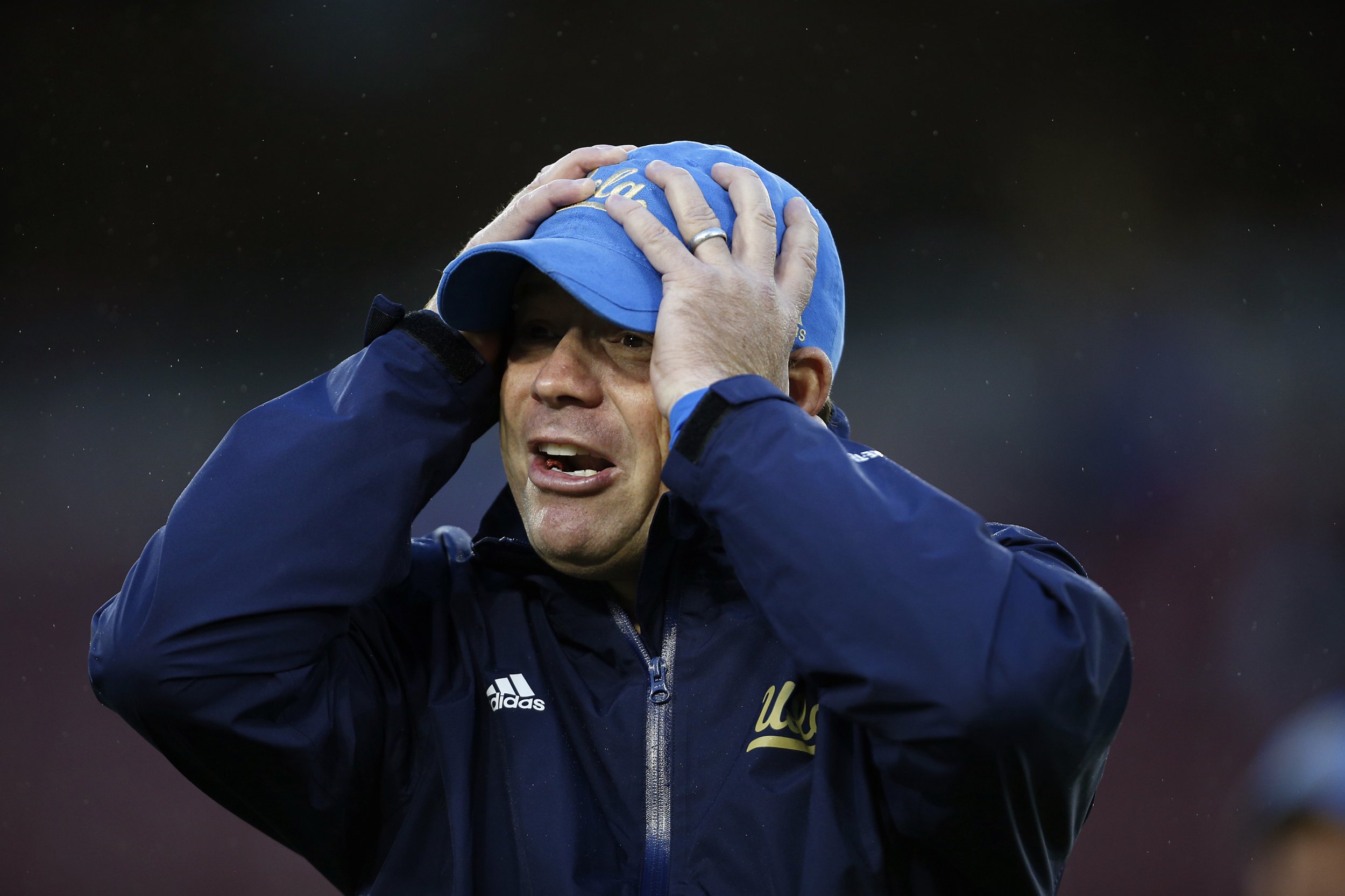
The essence of gambling is that money changes hands. Sometimes, however, such as in the closing seconds of last Saturday night's game between Stanford and UCLA, the alacrity with which fates are changed makes it almost feel as if some sleight of hand occurred.
With less than one minute left to play, the unranked Bruins led the No. 7 Cardinal 13-9. UCLA, which had lost eight in a row to their Pac-12 neighbors to the north, was a 3.5-point underdog "in the desert," as sports commentators wryly refer to Nevada casinos. For anyone who had bet on UCLA, the Bruins did not need to win the game outright; they only needed to lose by fewer than four points. And here they were ahead by that many in the final minute.
With :28 remaining and having no timeouts, Stanford snapped the ball from the UCLA eight-yard line. Quarterback Ryan Burns lofted a fade pass to tight end JJ Arcega-Whiteside, who out-leaped the Bruin defender for the go ahead touchdown. After the Cardinal kicked the PAT, they led 16-13. Bruin fans inside the Rose Bowl were devastated, but those who'd put money on UCLA took solace in the fact that there would still be financial gain.
Three plays later, UCLA quarterback Josh Rosen took the snap from UCLA's 47-yard line. As he scanned downfield and prepared to unload a Hail Mary pass toward the far end zone, Stanford's Joey Alfieri caved in on him from behind. The clock read 0:00 but the play—the game—was not over. Alfieri had jarred the ball loose. Cardinal defensive lineman Solomon Thomas scooped up the ball at Bruin 42 yard-line and began chugging for paydirt.
There was no reason for Thomas to continue running. If he had just fallen to the turf, the game would have ended and Stanford would have won. Instead, Thomas went full Forrest Gump for what scribes like to refer to as a "fat guy touchdown." Thomas huffed past the plane of the goal line, ending the contest and altering the final score from 16-13 to 22-13.
Thomas's run for glory affected not the outcome of the game but the payout of everyone who had wagered on the contest. "And a significant play to some!" ABC's Chris Fowler proclaimed, slyly referring to the fact that the Bruins failed to cover the +3.5 points.
Bad beats are not uncommon in sports gambling. This one just happened to turn on the game's final play, in a nationally televised prime-time contest on network TV, via a highly improbable defensive touchdown. For UCLA fans who also wagered on their own team, it was like being punched below the belt—twice.
The worst bad beat in college football in recent memory took place on Christmas eve of 2014, offshore in the Caribbean, at the inaugural Bahamas Bowl. Western Kentucky, a 2½-point favorite, led Central Michigan 49-14 entering the fourth quarter. All the Hilltoppers had to do, if you had wagered on them minus the points, was to not be outscored by 32 points in the fourth quarter. They were outscored by 34.
That was only the half of it. As inconceivable as it was to surrender five unanswered fourth-quarter touchdowns, WWKUKU gave up the final one on a 75-yard Hail Mary pass, complete with four laterals, on a play that began with :01 on the clock. This play happened only after the Hilltoppers had punted on fourth down, the ball barely bouncing into the end zone before time expired. Aggravating matters, after scoring to come within 49-48, Central Michigan went for two and the win—and failed.
And so only one question remains: If you took UCLA on Saturday evening, or WKU two years ago, why are you still betting on sports?
Uncommon Knowledge
Newsweek is committed to challenging conventional wisdom and finding connections in the search for common ground.
Newsweek is committed to challenging conventional wisdom and finding connections in the search for common ground.
About the writer
John Walters is a writer and author, primarily of sports. He worked at Sports Illustrated for 15 years, and also ... Read more
To read how Newsweek uses AI as a newsroom tool, Click here.








